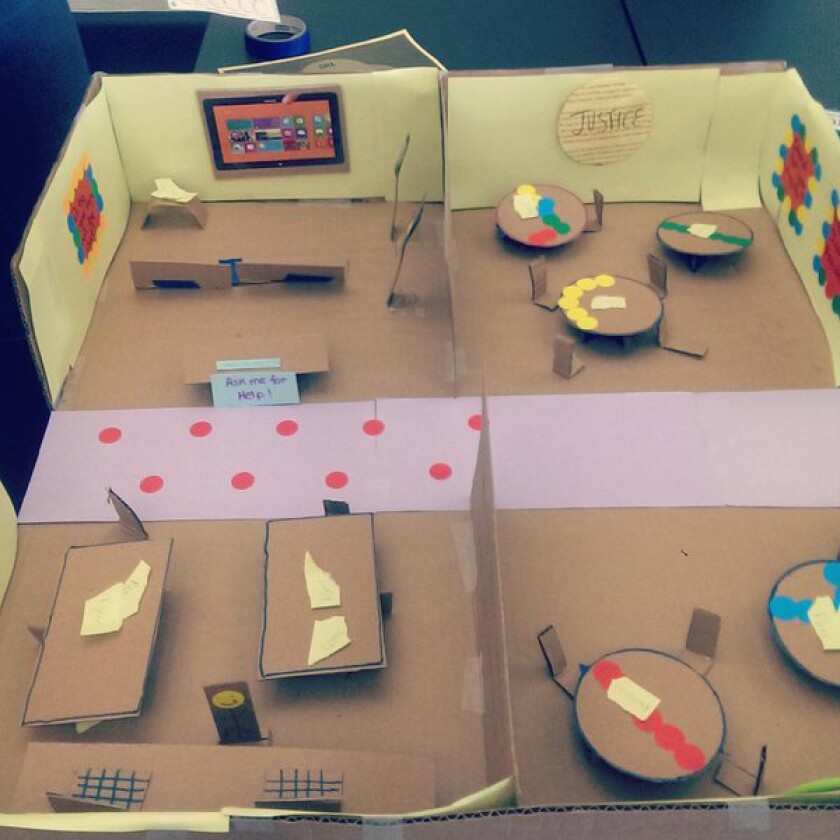Three years ago, a group of high school- and college-age students in Cook County spent a summer studying ways to ease the transition from youth detention centers back to the community. The students found that a lot of young people didn't know they were eligible to have their records expunged, and the ones who did still weren't sure how to start the process. In Cook County, the annual number of juvenile arrests dwarfs the number of expungements. Between 2010 and 2014, there were about 28,000 juvenile arrests each year, on average, but only about 650 juvenile expungements.
The students wanted to make the process more accessible, so they created Expunge.io, a free website and smartphone app that helps Cook County residents erase their records of arrests, charges and minor convictions that happened before they were 18 years old.
With help from a software developer and a civic technology nonprofit, the students built an app to simplify the process of determining eligibility and requesting expungement. As a result, between 2013 and 2015 the annual number of expungements nearly doubled.
Before Expunge.io, people had to wade through a 25-page document with technical language to figure out if they qualified for expungement. By contrast, the app asks a few questions and connects the person with free legal aid. The concept is spreading to other states, such as Louisiana and Maryland, where nonprofits have created similar apps.
Having a juvenile record stunts peoples' progress in nearly every aspect of life, making it more difficult to attain jobs, housing and financial aid. States vary in how they treat juvenile records.
In Alaska, for example, the state automatically expunges juvenile records within 30 days of a teen's 18th birthday or 30 days after their court release. Until last year, Washington state required people to file a motion to have their records sealed -- and prosecutors could object. In 2015, though, the state Supreme Court ruled that juvenile records would be sealed automatically for people who met certain requirements, such as paying restitution and not having additional offenses for two years.

The Mikva group created cardboard mockups of a youth-friendly juvenile courtroom and waiting room. (Twitter/Mikva Challenge)
The official name of the Cook County youth advisory group is “Mikva Challenge’s Juvenile Justice Council,” named after Abner Mikva, a former Illinois congressman and state assemblyman. Much of Mikva's work focused on empowering individuals in marginalized communities, particularly young minorities. The Mikva Challenge is a nonprofit that works alongside Chicago and Cook County government to engage young people in civic affairs. Each summer, about 25 paid student interns research a question and publish a report with policy recommendations.
Twenty-year-old Lali Avila joined the group after a friend died in a gang conflict. “That made me want to make a difference,” she said. “I was tired of all these Hispanic and black youth going through this stuff.”
When Avila and her peers presented their findings to Cook County Board President Toni Preckwinkle, "she was straight to the point, and she told us what she liked and what she didn’t like," Avila said. "She took us very seriously." If Preckwinkle believes an idea can work, she'll promote it and use her connections to get it implemented.
Expunge.io was the group's first concrete accomplishment, but they're already working on new projects. Last summer, the students found that the juvenile court system alienated young people with unfamiliar legal language and intimidating spaces. With Preckwinkle's help, the students met with the superintendent of the county's juvenile temporary detention center about redesigning several rooms. The students proposed putting educational materials on the walls, such as videos about the juvenile justice system and posters with legal vocabulary definitions.
"It's young people in the facility," said Emma Kornfeld, a senior program director with the Mikva Challenge, "and young people require different things."









